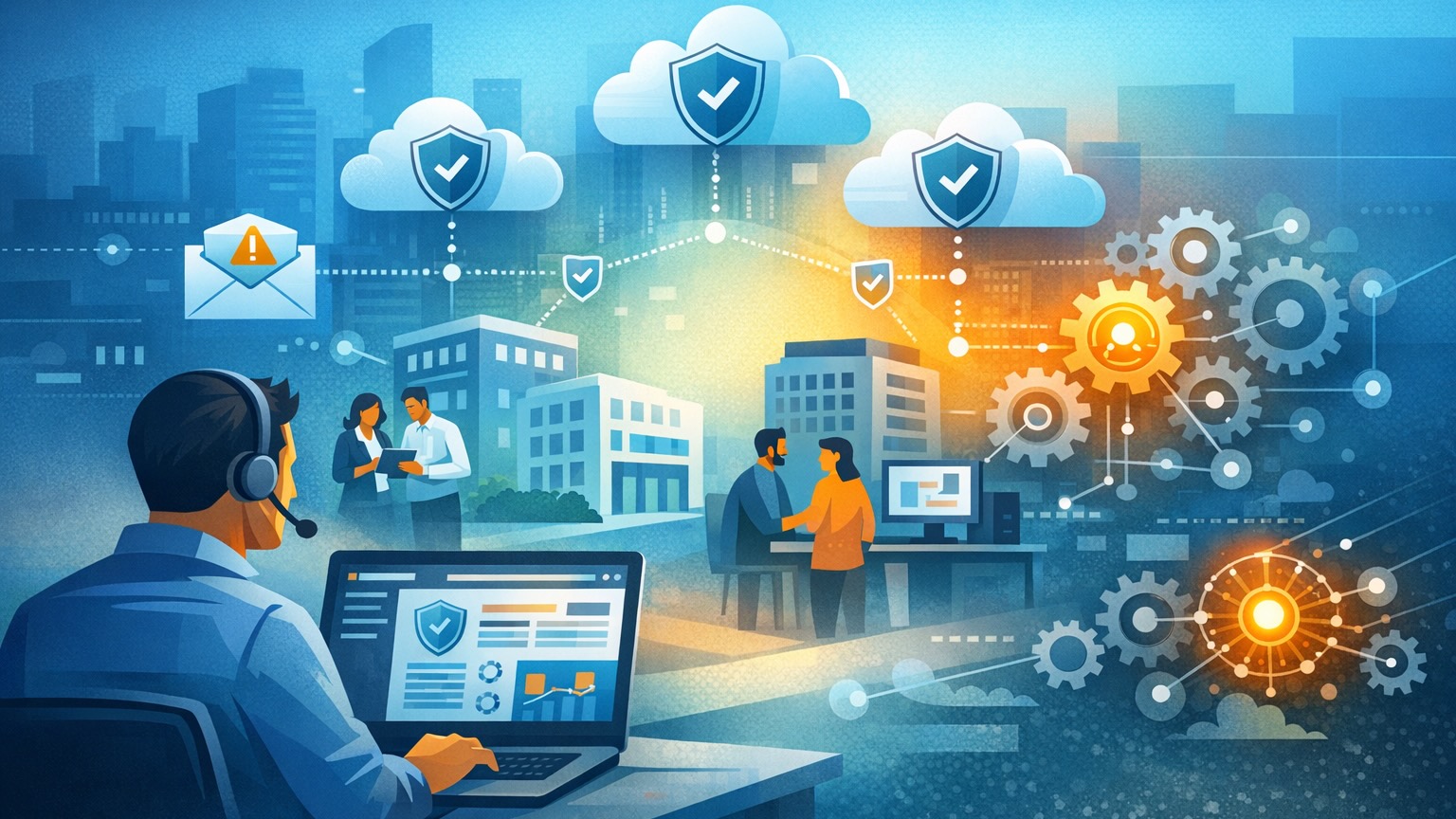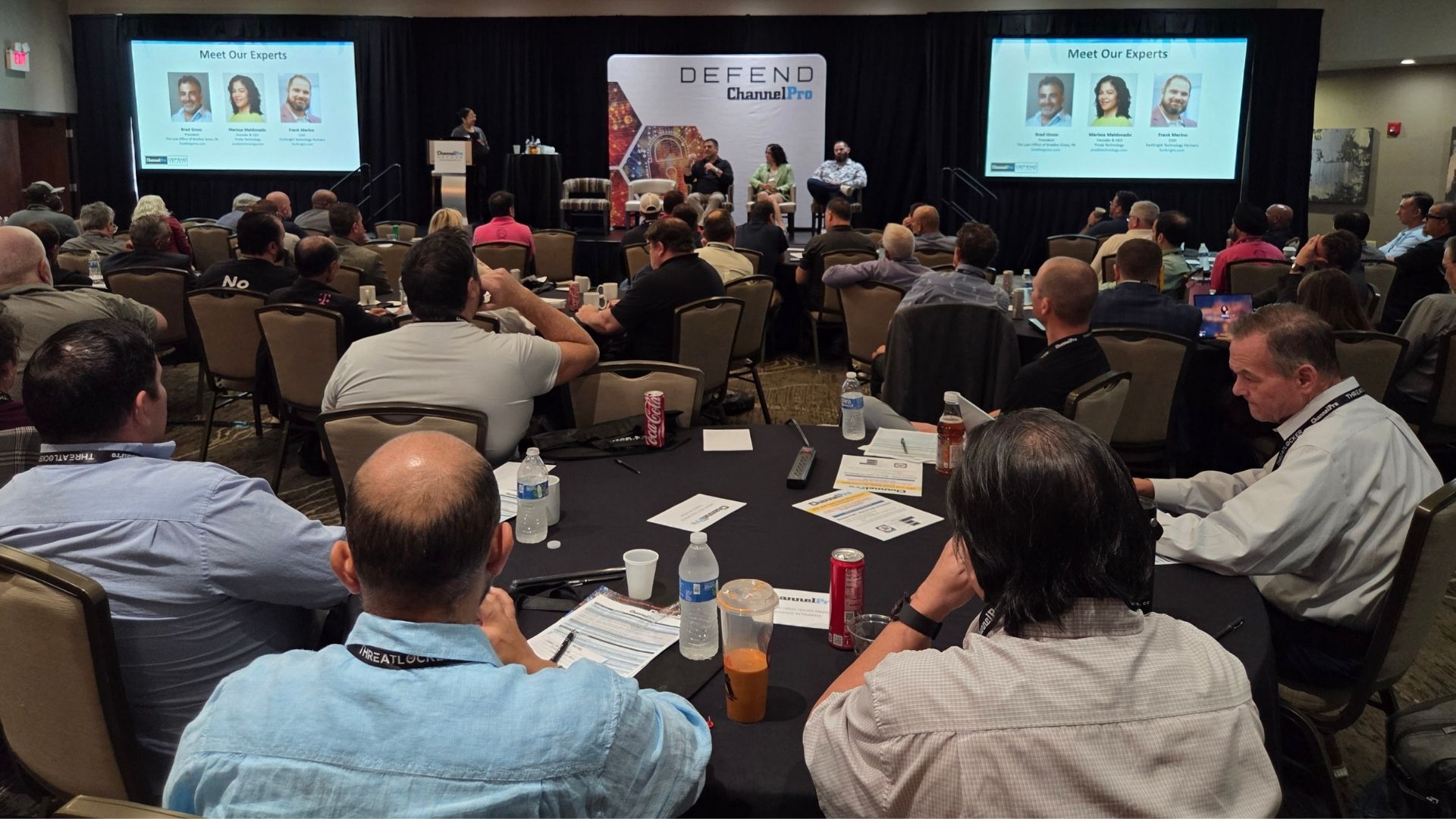If you want to keep a tech pro awake at night, skip the haunted server room stories and go straight for quantum computing. Not because it’s scary (though it kind of is), but because if it suddenly matured overnight and went mainstream, the ripple effects would make Y2K look like a play day at the beach.
The description of the outcome wouldn’t be much unlike Billy Bob Thorton’s response to the President’s question about the kind of damage to expect from the meteor’s impact in the 1998 doomsday classic Armageddon. “Damage? Total, sir. It’s what we call a global killer. The end of mankind. Doesn’t matter where it hits. Nothing would survive…”
Quantum computing has long been this weird, sci-fi adjacent corner of tech that’s “always five years away.” But, let’s pretend that changes. Imagine waking up tomorrow and quantum computing is no longer in research labs or the hands of a few universities or tech giants, but commercial, accessible, and in the hands of nation-states, corporations, and (inevitably) malicious actors.
Now what?
Quantum Computing 101: What Makes It So Different?
At a basic level, traditional computers process information as bits — ones and zeroes. Quantum computers use qubits, which can be one, zero, or both at the same time (a property called superposition). They also take advantage of entanglement, where two qubits are linked and instantly affect each other, even across distances. This gives quantum computers the power to process and analyze enormous datasets and complex problems exponentially faster than classical machines. If you like complicated physics, dive in to learn more about how qubits work.
For the non Sheldon Cooper’s of the world, in practical terms, quantum computing breaks the rules of how everything from encryption to logistics has been designed. Algorithms like RSA, which are used to protect most secure communications today, rely on the fact that it would take classical computers hundreds of years to factor large prime numbers. A quantum computer? It could do it in minutes, or even seconds.
So, if quantum computing went mainstream overnight, it wouldn’t just be a cool leap in processing power. It would detonate a bomb in the middle of the digital status quo.
Encryption Is Toast. Now What?
Let’s start with the big one. Almost every secure system in the modern world like online banking, VPNs, digital signatures, secure emails, messaging apps, HTTPS, firmware validation, etc. relies on cryptographic protocols that quantum computing could instantly break. Not “work around.” Not “brute force over time.” Break. Instantly.

Rory V. Sanchez
“Based on what everyone has in place today, if quantum computing became available tomorrow, we’d have to stop using the Internet almost immediately,” says Rory Sanchez, ceo, Forthright Technology Partners.
We’re not just talking about leaking your Slack messages. Imagine the entire internet’s infrastructure suddenly being transparent. VPN tunnels collapse. Encrypted databases are exposed. Firmware update signatures can be spoofed. Even past data, previously thought secure, could be decrypted retroactively. Those sensitive documents archived from 2010? They’re fair game now.
Cybersecurity as we know it wouldn’t just be outdated, it would be functionally obsolete. Organizations scrambling to implement post-quantum encryption would find themselves in a frantic race to replace, update, and rethink everything. And unfortunately, there wouldn’t be enough cryptographers to go around.
Or according to Sanchez, “Until we have post-quantum encryption or quantum-resistant encryption, today’s encryption schemes could be easily broken and not safe to use under any circumstances.”
The Economy Takes a Hit
Modern economies are built on trust and digital infrastructure. A sudden collapse of encryption would send shockwaves through financial systems. Stock exchanges, banks, and trading platforms could become immediate targets. Payment systems that rely on encrypted channels (credit cards, wire transfers, fintech apps) would grind to a halt.
The result? Massive selloffs, freezing of accounts, halted trades, and a plummet in consumer confidence. The companies hit hardest wouldn’t necessarily be the ones that get breached, but the ones that fail to respond fast enough. You might see a whole new type of “too big to fail,” where cloud platforms and payment providers need government bailouts just to stabilize digital trust.
Insurance companies would be rewriting cyber liability clauses in real time. Bitcoin and other cryptocurrencies that rely on public-key cryptography could see their value evaporate unless they’ve already adopted quantum-resilient protocols (spoiler alert: most haven’t).
Business: The Good, the Bad, and the Scrambled
If you’re running a business, your response to this news flash would depend heavily on your digital maturity. Large enterprises would throw money and talent at the problem immediately (and to be fair, some already are). MSPs and IT service providers would be on speed dial as clients look for emergency help migrating to post-quantum solutions (assuming such solutions are even available for their need).
On the other hand, businesses that are heavily reliant on SaaS platforms may be in limbo, stuck waiting for their vendors to push secure updates. Trust becomes the most valuable currency in the B2B world, especially for providers of backup solutions, communications platforms, and anything handling sensitive data.
Ironically, some of the biggest winners in this scenario could be smaller players or startups already working on quantum-safe algorithms. Overnight, niche vendors in the “post-quantum cryptography” space would be flooded with venture capital and acquisition offers. Quantum readiness might become the new “zero trust” on every CIO’s bingo card.
Geopolitics Gets Complicated, Quickly
If you thought today’s digital cold wars were tense, quantum computing would take things to DEFCON 1. Governments would immediately classify quantum capabilities as top-tier national security assets. Any nation with access to functional quantum computing would have the upper hand, not just militarily, but economically and diplomatically.
International espionage efforts would spike as state actors rush to steal (or disrupt) each other’s post-quantum efforts. Treaties would be drafted overnight, some in good faith, others in desperation. Expect a new arms race, this time fought not with missiles, but math.
Existing surveillance programs would be scrutinized all over again. Did certain governments already capture encrypted data years ago with plans to decrypt it once quantum tech matured? That kind of “store now, decrypt later” strategy suddenly comes into play in a big way.
Past Breaches are a Ticking Time Bomb

Remember the breach that occurred 6 years ago that you thought was done and over? According to Esteban Blanco, chief geek officer of Blanco IT, prepare for some of those events to come around fill circle.

Esteban D. Blanco
“We’ve known that for some time now, malicious actors have stolen encrypted data and they are just sitting on it, waiting for quantum computing to flourish. All that stolen data is already out there, and they will be able eventually to unencrypt and see it.”
There could be a tidal wave of fallout as once-protected information comes spilling into the open. Intellectual property, government secrets, medical records, and sensitive corporate communications that were stolen years ago could suddenly be decrypted and weaponized. It’s not just about embarrassing emails resurfacing, but entire competitive strategies, classified intelligence, and personal identities becoming exposed all at once. For businesses and governments alike, it would mean managing not only new breaches, but the public, legal, and financial consequences of old ones returning with a vengeance.
The Social Fallout: Mistrust and Mayhem
Outside of governments and business, the general public would feel the impact in more subtle but widespread ways. Data breaches that expose personal health records, financial info, private messages (things people assumed were safe) would trigger outrage. Lawsuits would fly as fast as commercials from lawyers asking, “Have you been affected by mass decryption?” hit the airwaves. Social media would descend into chaos… which some may not notice or could consider an improvement.
Paranoia would spike. Consumers might abandon online services en masse. Fraud, impersonation, and identity theft would skyrocket. Every deepfake, phishing attack, and social engineering attempt would become more convincing and more damaging in a world where digital signatures can no longer be trusted.
Privacy advocates would go into overdrive, while authoritarian regimes might see an opportunity to impose tighter control under the guise of “cybersecurity reform.” The very language of the internet (i.e. trust, privacy, authentication) would need a rewrite.
Silver Linings? Yes, But They’re Thin
It’s not all doom and dystopia. In some ways, mainstream quantum computing would open up doors to scientific and medical advancements we can barely comprehend. Quantum simulations could revolutionize drug development, climate modeling, and materials science. Complex logistical challenges, like supply chain routing or air traffic coordination, could be solved in seconds instead of hours.
But, the benefits wouldn’t arrive evenly. The first ones through the door would be governments, global tech giants, and well-funded researchers. For most people and small businesses, the first chapter of the quantum era would be one of confusion, scrambling, and rebuilding.
What MSPs and IT Pros Should Be Thinking About
For the IT channel, this hypothetical scenario isn’t just a thought experiment. It’s a useful stress test. If quantum computing really did go mainstream tomorrow, what would break first in your stack? What would your clients ask for? How quickly could you respond?

Rebecca Herold
Rebecca Herold, CEO and cofounder of the Privacy & Security Brainiacs, says the time to act is now. “While quantum computing is not saturating the online discussions right now (AI is stealing all the attention at the moment), it will soon be used widely, and catching most organizations off-guard. IT providers, and MSPs generally, can provide a great service to their clients by helping them be prepared for the impacts of quantum computing, starting with password encryption.”
According to Herold, there are some high-level actions MSPs can start to take now to thoughtfully prepare for when quantum computing infiltrates an organization’s digital ecosystem:
- Identify and inventory all the password, and other types of authentication, related cryptography being used.
- Determine, and document, how systems can be designed to most easily and efficiently swap out the currently cryptographic algorithms without the need to make major systems engineering changes.
- Identify quantum-computing-resistant password hashing functions to transition to from those identified cryptographic algorithms. Then make a plan for how to upgrade efficiently with minimal (if any) disruption to business processing to those strong password hashing functions.
- Identify alternative authentication methods. For example, implementing hardware security keys using post-quantum algorithms and biometric systems that don’t rely on vulnerable primitive cryptographic algorithms.
In the End, It’s a Race Against Time
Quantum computing isn’t an “if” question. It’s a “when.” While it probably won’t be here tomorrow, when that day comes, the internet will have to reinvent itself at warp speed.
So, take a minute and think it through. If your digital world cracked open tomorrow, what would you do first? And no, hoping Bruce Willis and Owen Wilson save the day isn’t an option.
As ChannelPro’s online director and tech editor for over a decade, Matt Whitlock has spent years blending sharp tech insight with digital know-how. He brings more than 25 years’ experience working in the technology industry to his reviews, analysis, and general musings about all things gadget and gear.
Image Credit: iStock, LinkedIn













